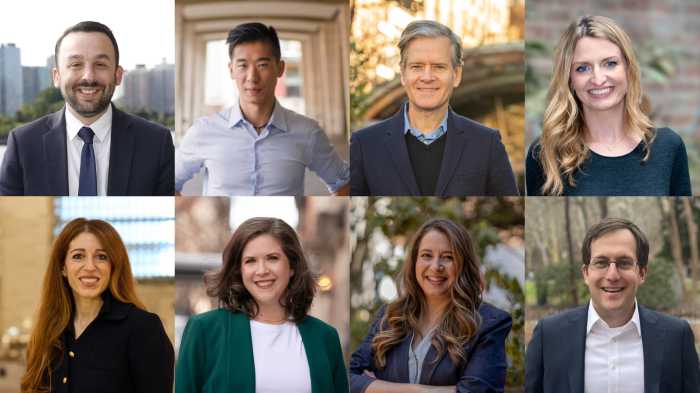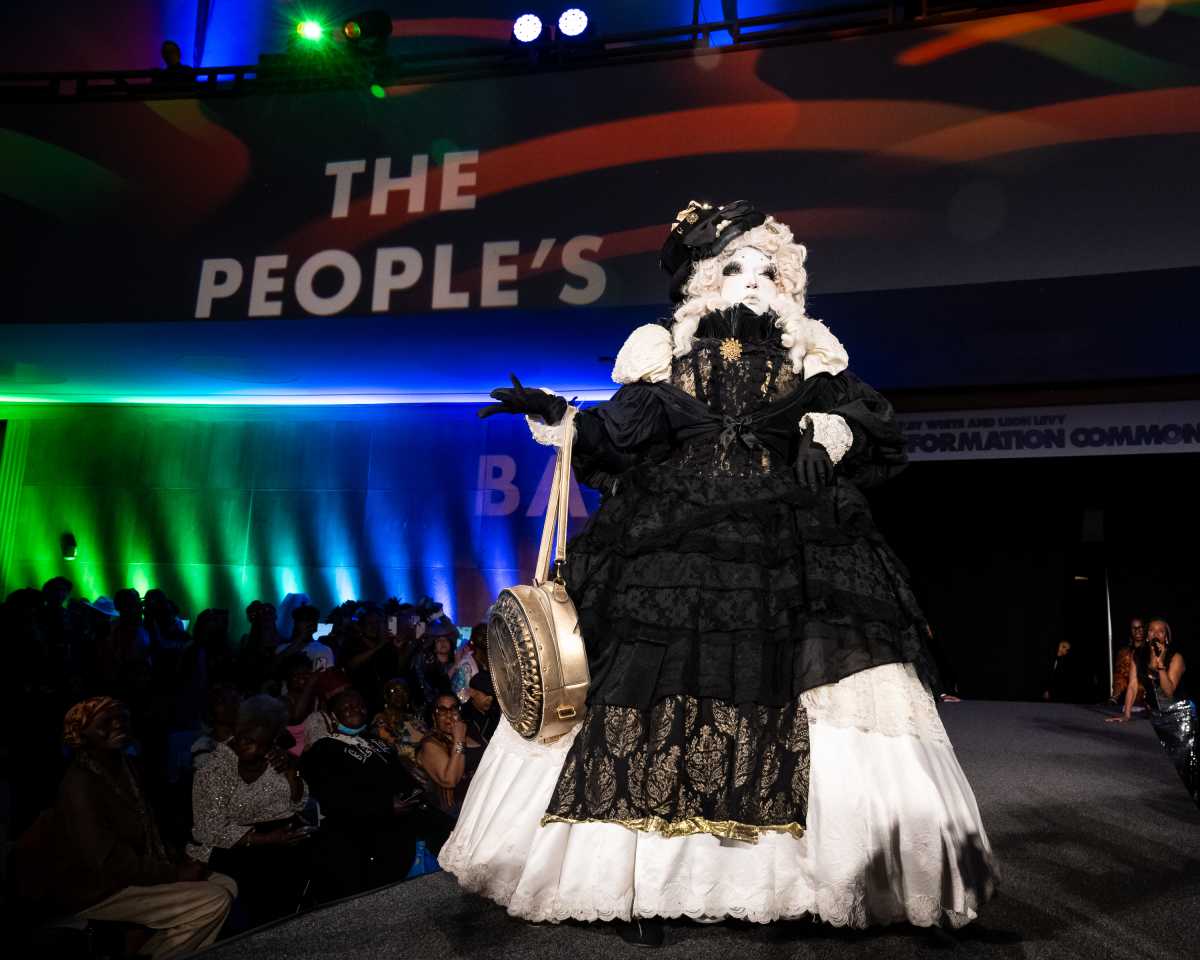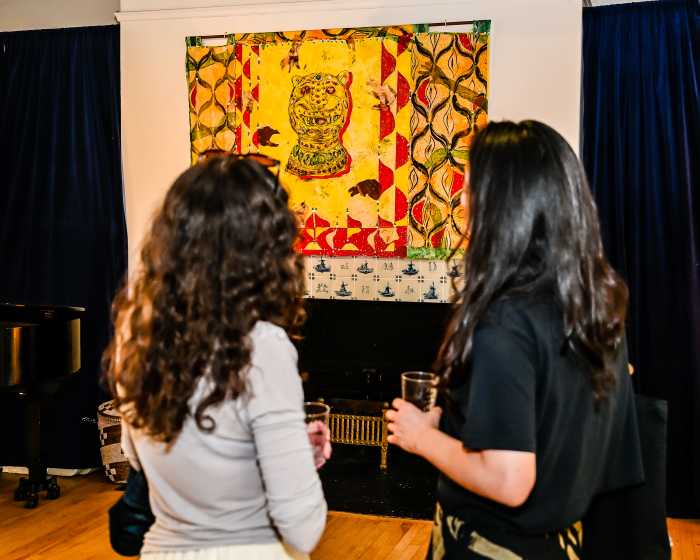Bedfellows make for strange politics.
Election season can be a contentious time for bipartisan couples — and this year is no exception.
Peter Fontanes, 67, a Democrat, who lives with his Republican partner Janet Ruiz, 52, in Long Island City, credits multiple televisions as powerful peacekeepers.
“On Sunday morning, she sits in the living room watching Fox News and I’m in the bedroom watching MSNBC,” he explained.
But Ruiz, his inamorata of eight years and live-in partner for five – and who’s writing in Marco Rubio for president – “controls the radio” in the car, forcing him, a Hillary Clinton supporter, to listen to right wing broadcasters such as Rush Limbaugh.
If Fontanes and Ruiz violate the age-old adage to resolve squabbles before hitting the sack, that might be in part because he stays up watching “Real Time With Bill Maher.”
“We go to bed mad,” Fontanes, a real estate developer and contractor, jovially admits.
“I just cover up my head and go to sleep,” said Ruiz, a criminal justice student who harbors an antipathy for Maher equal to her disdain for President Obama.
Political differences can enrich a relationship, “if you can keep it civil, but you can’t always keep it civil,” admitted Ruiz.
No one monitors how many people are sleeping with their political enemies, though a 2013 Weddingbee.com poll found that 8% of respondents copped to political leanings different from their spouse. (In contrast, 15% admitted differences in sex drive and/or style of sex and to differences in hobbies and free time preferences).
People rarely marry others from the other side of the political spectrum because issues concerning reproductive rights, immigration, equality, education and even foreign policy often represent the “core values” of who we are as individuals, explained Dr. Jessica Zmood, an Upper West Side psychologist who has seen her patients’ friendships “very much affected by conflicts around Donald Trump.”
But people can differ drastically and “still have a thriving relationship,” Zmood noted, with some experiencing intellectual jousting as “a form of flirtation.” People who evaluate the behavior of a partner inside their relationship separately from his/her identity and behaviors out in the world are also candidates for solid bipartisan couplings.
“I was looking for someone who was nice and sweet and took all the good with the bad,” recounted Katie Horst, 33, a Manorville, Long Island, Democrat who works as the director of intergovernmental relations for Suffolk County Executive Steve Bellone.
Horst, 33, found those qualities in Bill Faulk, 39, a Republican who ran unsuccessfully for State Assembly in 2006 and now works as an aide to Brookhaven Town Supervisor Edward P. Romaine.
“Here’s how we do it: We don’t. We don’t talk about it at all. We don’t discuss (policy) issues,” said Faulk. Horst supports Hillary Clinton and Faulk is rooting for Ted Cruz.
If anyone “understands bipartisanship, it’s my wife and I: We work in a bipartisan fashion in everything from raising our children (Liam, 4, and Porter, 2) to making dinner,” Faulk said.
Having walked down the aisle together helps them cross the aisle in their jobs. “I have a great relationship with the Republicans in the county legislature. … They’re always willing to speak with me,” knowing that she lives with one, Horst said.
Their partnership proves, they say, that yes, we CAN all get along: At their gatherings, their friends from both parties mingle happily, “and realize they have plenty of common interests,” Horst said.
Faulk is a sterner disciplinarian “and I’m a little more liberal” with their boys, Horst conceded, but they are united on most of their domestic policies.
Perhaps one of the kookiest bipartisan couplings is that of Bernie Sanders supporter Lainie Speiser, 47, of Hoboken, who will be marrying her beau, actor and East Harlem resident David Healy, 55, a Donald Trump champion, at the Women’s National Republican Club this summer.
“You widen the net as you get older,” explained Speiser, who finds her fiancée’s loyalty and lack of judgy-ness a welcome change from that of doctrinaire liberals.
“If she worked for the Obama administration, it would be a problem, but porn? No problem!” explained Healy, who discovered the woman he met on Match.com was a publicist for the adult entertainment industry.
“I dated people on the far, far left and they all had a problem with what I did,” Speiser said.
Healy accompanies Speiser to her industry events and lauds Speiser’s entrepreneurial chops. She admires him for his volunteer work and loyalty. Healy never imagined he’d marry a liberal, but, he rationalized, neither did he imagine “I’d be dating a Sephardic Jewish redhead with sparkling blue eyes.”
Even feisty couples find they share some common ground.
While Ruiz and Fontanes sometimes argue furiously, Ruiz acknowledged they share beliefs including that small businesses should not be unduly burdened, and in “the betterment for us not just as individuals, but for the whole Latino race.”
Fontanes appreciates the fact that Ruiz allows him to hone his debating skills and is relieved that Ruiz despises Trump “almost as much as I do.”
But what really unites them, he said, is the shared belief that at least 20% of people, in both political parties, “are just plain crazy.”


































